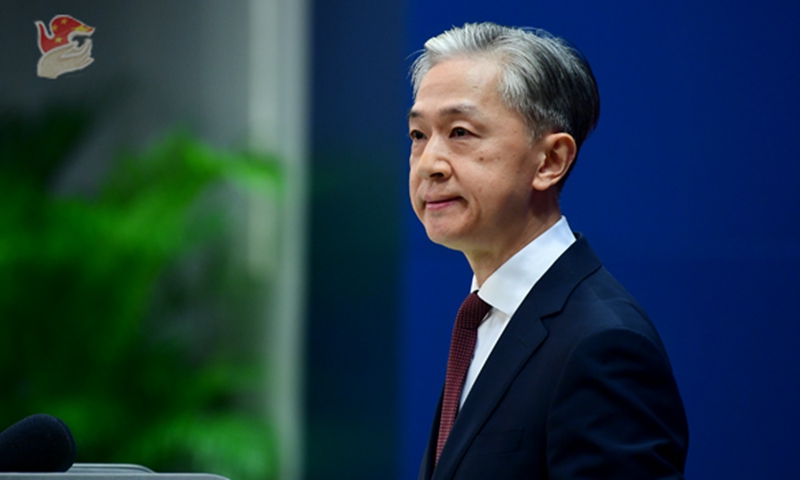
Chinese Foreign Ministry Spokesperson Wang Wenbin Photo: The official website of the Chinese Foreign Ministry
China's ecological and environmental protection has undergone a historic, watershed and overall transformation since the 18th National Congress of the Communist Party of China (CPC) in 2012, and China will remain committed to green and low-carbon development, Wang Wenbin, the Chinese Foreign Ministry Spokesperson, said at a press conference on Thursday.
The threat of a resource shortage has triggered a wave of climate conservatism in many European countries, with plans to prolong coal use and put emissions control on hold sitting at the front of this wave, according to media reports.
The global climate governance is being challenged by COVID-19, the economic downturn and the food and energy crisis, which has led to the reversal of climate policies in some countries, said Wang. "We hope that these countries can overcome difficulties as soon as possible and return to the right track of low-carbon and green development, so as to jointly achieve the goals of the Paris Agreement," he continued.
China
has set "dual carbon" goals to achieve the highest reduction in carbon emission intensity in
the world and achieve carbon neutrality from carbon peak in the shortest time
in global history.
Over the past decade, China's share of coal consumption among all energy consumption has fallen to 56 percent, the fastest decline in history. Non-fossil energy accounted for 16.6 percent of the total, and the installed capacity of renewable energy exceeded 1 billion kilowatts, ranking first in the world in wind, light, water and biomass power generation.
Moreover, China's forest area has reached 227 million hectares, and the country's average economic growth of 6.5 percent was supported by an average annual growth of 3 percent in energy consumption, Wang added.
Wang noted that China has not only adhered to the path of green development itself, but also constructively participated in the multilateral process on climate change and made historic contributions to the conclusion and implementation of the Paris Agreement. China has also continued to deepen South-South cooperation on climate change and has done its best to help developing countries enhance their capacity to cope with climate change.
Up to now, China has allocated more than 1.2 billion yuan ($160 million) to South-South cooperation on climate change, signed 43 South-South cooperation documents with 38 developing countries, and trained about 2,000 officials and experts in the field of climate change for more than 120 developing countries.
China is firmly committed to pursuing green, low-carbon and sustainable development, and will accelerate the green transformation of its development model, and actively participate in the global governance of climate change, so as to make greater contributions to building a beautiful China and a beautiful world, Wang remarked.
Global Times

